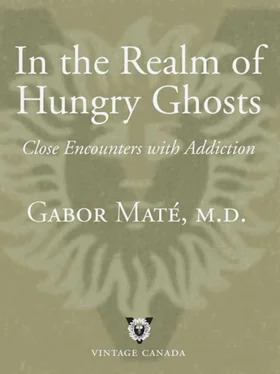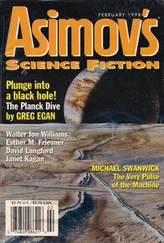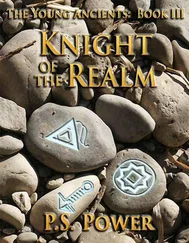There is a host of questions to be considered. Among them:
• What are the causes of addictions?
• What is the nature of the addiction-prone personality?
• What happens physiologically in the brains of addicted people?
• How much choice does the addict really have?
• Why is the “War on Drugs” a failure and what might be a humane, evidence-based approach to the treatment of severe drug addiction?
• What are some of the paths for redeeming addicted minds not dependent on powerful substances—that is, how do we approach the healing of the many behaviour addictions fostered by our culture?
The narrative passages in this book are based on my experience as a medical doctor in Vancouver’s drug ghetto and on extensive interviews with my patients—more than I could cite. Many of them volunteered in the generous hope that their life histories might be of assistance to others who struggle with addiction problems or that they could help enlighten society regarding the experience of addiction. I also present information, reflections and insights distilled from many other sources, including my own addictive patterns. And finally, I provide a synthesis of what we can learn from the research literature on addiction and the development of the human brain and personality.
Although the closing chapters offer thoughts and suggestions concerning the healing of the addicted mind, this book is not a prescription. I can say only what I have learned as a person and describe what I have seen and understood as a physician. Not every story has a happy ending, as the reader will find out, but the discoveries of science, the teachings of the heart and the revelations of the soul all assure us that no human being is ever beyond redemption. The possibility of renewal exists so long as life exists. How to support that possibility in others and in ourselves is the ultimate question.
I dedicate this work to all my fellow hungry ghosts, be they inner-city street dwellers with HIV, inmates of prisons or their more fortunate counterparts with homes, families, jobs and successful careers. May we all find peace.

PART I

Hellbound Train
What was it that did in reality make me an opium eater? Misery, blank desolation, abiding darkness.
THOMAS DE QUINCEY
Confessions of an English Opium Eater
CHAPTER 1

The Only Home He’s Ever Had
As I pass through the grated metal door into the sunshine, a setting from a Fellini film reveals itself. It is a scene both familiar and outlandish, dreamlike and authentic.
On the Hastings Street sidewalk Eva, in her thirties but still waif-like, with dark hair and olive complexion, taps out a bizarre cocaine flamenco. Jutting her hips, torso and pelvis this way and that, bending now at the waist and thrusting one or both arms in the air, she shifts her feet about in a clumsy but concerted pirouette. All the while she tracks me with her large, black eyes.
In the Downtown Eastside this piece of crack-driven improvisational ballet is known as “the Hastings shuffle,” and it’s a familiar sight. During my medical rounds in the neighbourhood one day, I saw a young woman perform it high above the Hastings traffic. She was balanced on the narrow edge of a neon sign two storeys up. A crowd had gathered to watch, the users among them more amused than horrified. The ballerina would turn about, her arms horizontal like a tightrope walker’s, or do deep knee bends—an aerial Cossack dancer, one leg kicked in front. Before the top of the firemen’s ladder could reach her cruising altitude, the stoned acrobat had ducked back inside her window.
Eva weaves her way among her companions, who crowd around me. Sometimes she disappears behind Randall—a wheelchair-bound, heavy-set, serious-looking fellow, whose unorthodox thought patterns do not mask a profound intelligence. He recites an ode of autistic praise to his indispensable motorized chariot. “Isn’t it amazing, Doc, isn’t it, that Napoleon’s cannon was pulled by horses and oxen in the Russian mud and snow. And now I have this!” With an innocent smile and earnest expression, Randall pours out a recursive stream of facts, historical data, memories, interpretations, loose associations, imaginings, and paranoia that almost sound sane—almost. “That’s the Napoleonic Code, Doc, which altered the transportational mediums of the lower rank and file, you know, in those days when such pleasant smorgasboredom was still well fathomed.” Poking her head above Randall’s left shoulder, Eva plays peek-a-boo.
Beside Randall stands Arlene, her hands on her hips and a reproachful look on her face, clad in skimpy jean shorts and blouse—a sign, down here, of a mode of earning drug money and, more often than not, of having been sexually exploited early in life by male predators. Over the steady murmur of Randall’s oration comes her complaint: “You shouldn’t have reduced my pills.” Arlene’s arms bear dozens of horizontal scars, parallel, like railway ties. The older ones white, the more recent red, each mark a souvenir of a razor slash she has inflicted on herself. The pain of self-laceration obliterates, if only momentarily, the pain of a larger hurt deep in the psyche. One of Arlene’s medications controls this compulsive self-wounding, and she’s always afraid I’m reducing her dose. I never do.
Close to us, in the shadow of the Portland Hotel, two cops have Jenkins in handcuffs. Jenkins, a lanky Native man with black, scraggly hair falling to below his shoulders, is quiet and compliant as one of the officers empties his pockets. He arches his back against the wall, not a hint of protest on his face. “They should leave him alone,” Arlene opines loudly. “That guy doesn’t deal. They keep grabbing him and never find a thing.” At least in the broad daylight of Hastings Street, the cops go about their search with exemplary politeness—not, according to my patients, a consistent police attitude. After a minute or two Jenkins is set free and lopes silently into the hotel with his long stride.
Meanwhile, within the span of a few minutes, the resident poet laureate of absurdity has reviewed European history from the Hundred Years’ War to Bosnia and has pronounced on religion from Moses to Mohammed. “Doc,” Randall goes on, “the First World War was supposed to end all wars. If that was true, how come we have the war on cancer or the war on drugs? The Germans had this gun Big Bertha that spoke to the Allies but not in a language the French or the Brits liked. Guns get a bad rap, a bad reputation—a bad raputation, Doc—but they move history forward, if we can speak of history moving forward or moving at all. Do you think history moves, Doc?”
Leaning on his crutches, paunchy, one-legged, smiling Matthew—bald, and irrepressibly jovial—interrupts Randall’s discourse. “Poor Dr. Maté is trying to get home,” he says in his characteristic tone: at once sarcastic and sweetly genuine. Matthew grins at us as if the joke is on everyone but himself. The chain of rings piercing his left ear glimmers in the bronzed gold of the late afternoon sun.
Eva prances out from behind Randall’s back. I turn away. I’ve had enough street theatre and now I want to escape. The good doctor no longer wants to be good.
We congregate, these Fellini figures and I—or I should say we, this cast of Fellini characters—outside the Portland Hotel, where they live and I work. My clinic is on the first floor of this cement-and-glass building designed by Canadian architect Arthur Erickson, a spacious, modern, utilitarian structure. It’s an impressive facility that serves its residents well, replacing the formerly luxurious turn-of-the-century establishment around the corner that was the first Portland Hotel. The old place, with its wooden balustrades, wide and winding staircases, musty landings and bay windows, had a character and history the new fortress lacks. Although I miss its Old World aura, the atmosphere of faded wealth and decay, the dark and blistered windowsills varnished with memories of elegance, I doubt the residents have any nostalgia for the cramped rooms, the corroded plumbing or the armies of cockroaches. In 1994 there was a fire on the roof of the old hotel. A local newspaper ran a story and a photograph featuring a female resident and her cat. The headline proclaimed, “Hero Cop Saves Fluffy.” Someone phoned the Portland to complain that animals should not be allowed to live in such conditions.
Читать дальше














